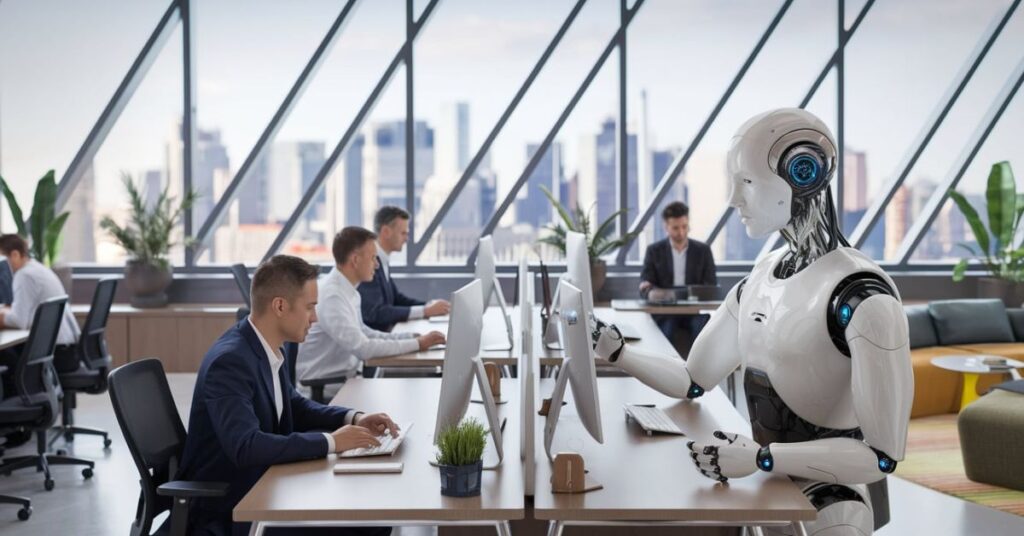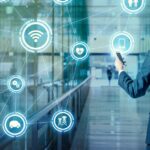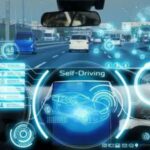Artificial Intelligence (AI) is rapidly changing how people work, learn, and live. Across industries, it’s not just automating tasks but also enhancing creativity and human collaboration. This shift, known as workforce transformation, is reshaping careers, requiring new skills, and unlocking human potential in AI-driven roles. In this article, we’ll explore how AI-driven innovation affects jobs, skills, and the global economy.
Embracing Automation: The Driving Force Behind Change
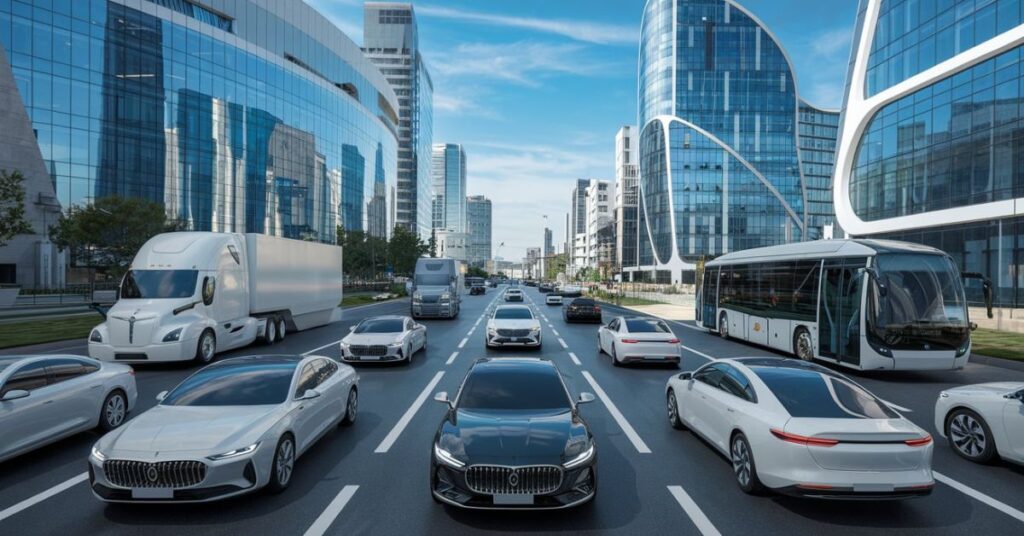
Automation is one of the most visible impacts of AI in workforce dynamics. Machines powered by Artificial Intelligence and Machine Learning (ML) transformation are now handling tasks once reserved for humans. From sorting packages in warehouses to analyzing vast amounts of data, automation of repetitive tasks saves time and money. For example, in logistics, predictive tools optimize delivery routes, reducing fuel costs and delays.
However, this progress comes with challenges. Job displacement and automation remain key concerns, especially for industries reliant on manual labor. As machines take over routine tasks, workers must adapt through reskilling and upskilling programs. Embracing a digital transformation strategy can help businesses and employees stay competitive.
You May Also read this Blog: Stop Wasting Time: Transform Your Life with These Self-Improvement Tips
Augmented Intelligence: Collaborating with AI

The concept of human-AI collaboration goes beyond automation. It emphasizes tools that augment rather than replace human capabilities. For example, AI in healthcare assists doctors by analyzing patient data, enabling faster and more accurate diagnoses. Similarly, in marketing, AI-driven insights help companies create targeted campaigns based on consumer behavior.
This synergy highlights the importance of balancing emotional intelligence and technical skills. Employees who can combine creativity and critical thinking in the AI era with AI-enabled productivity will thrive. A case study from the financial sector shows how analysts use AI tools for predictions while still relying on human judgment for final decisions.
| Human Skill | AI Capability |
| Emotional intelligence | Data-driven decision-making |
| Strategic decisions | Predictive maintenance |
| Creativity | Automating repetitive tasks |
The Shifting Nature of Job Roles

As AI evolves, traditional job roles are disappearing while new ones emerge. Hybrid roles combining human and technical expertise, such as AI ethicists or automation strategists, are becoming more common. These positions focus on ensuring ethical AI frameworks and managing cybersecurity risks.
Future of work trends also highlight the importance of adaptability. Industries like manufacturing and retail are transforming, requiring workers to embrace continuous learning. For example, engineers now need skills in AI tools for productivity, while marketing teams rely on personalized data insights.
Reskilling and Upskilling: Preparing for Tomorrow’s Workforce
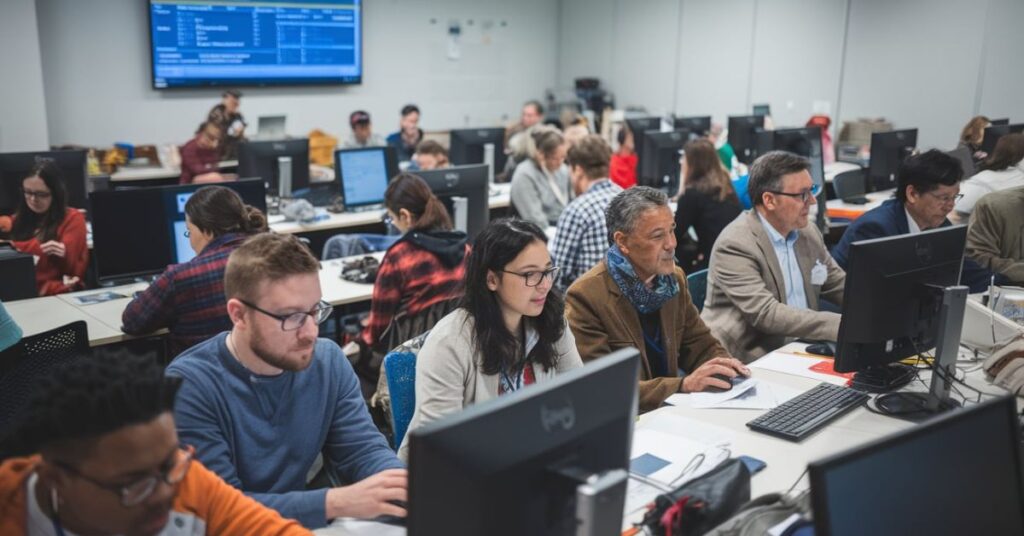
To navigate these changes, investing in reskilling and upskilling is crucial. Programs focusing on personalized learning allow employees to develop in-demand skills at their own pace. Platforms like Coursera and Udemy offer courses tailored to AI technologies, coding, and digital strategies.
Government initiatives and company-led training programs also play a vital role. For instance, IBM’s SkillsBuild program offers free training in AI impact on industries and cybersecurity, preparing participants for future roles. Encouraging employee engagement in the AI era ensures a smooth transition.
| Skill Type | Training Focus |
| Technical skills | Coding, AI tools, data analysis |
| Soft skills | Emotional intelligence, adaptability |
Ethical and Social Considerations of AI in Employment
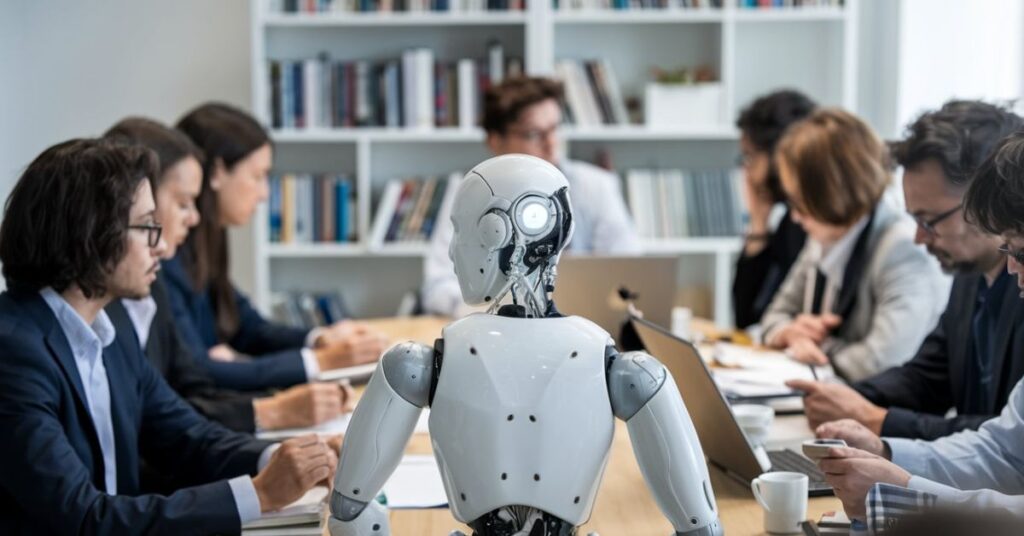
With great power comes great responsibility. Ethical AI frameworks are necessary to address concerns like bias in AI and job inequality. For example, AI algorithms must avoid unfair hiring practices by ensuring diversity and fairness in data.
Another key issue is the digital divide in technology adoption. Workers in underserved areas often lack access to resources for continuous learning. Bridging this gap can foster an inclusive workplace and reduce disparities in the AI-driven economy.
Opportunities and Innovations in Human-AI Collaboration
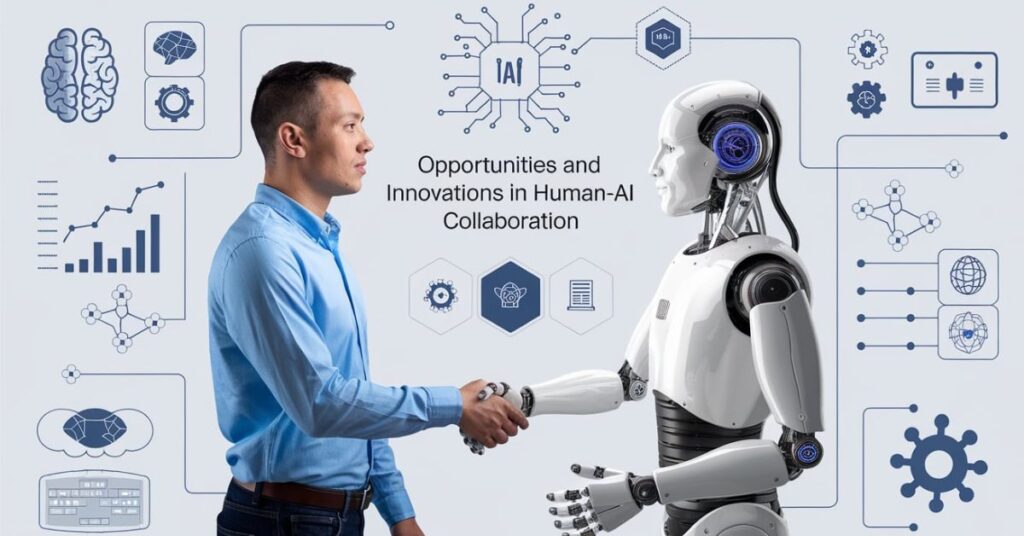
AI is opening doors to innovations previously unimaginable. In agriculture, AI-powered drones monitor crop health, ensuring efficient farming. Similarly, predictive maintenance tools reduce downtime in industries like energy and transportation. These innovations are driving AI-driven insights across sectors.
Companies that embrace human-AI synergy are discovering new revenue streams. For instance, startups focusing on AI-enabled productivity are revolutionizing how businesses operate. The key is fostering environments where machines and humans can work together effectively.
Pros and Cons of AI in Workforce Transformation

The integration of AI in the workforce brings numerous benefits. On the positive side, it boosts efficiency, fosters innovation, and enhances global competitiveness. Workers can focus on more meaningful tasks, leaving repetitive ones to machines. On the downside, it raises concerns about job displacement and automation, skill gaps, and ethical dilemmas.
Balancing these factors requires careful planning. Governments, businesses, and individuals must collaborate to ensure that the benefits of AI outweigh its drawbacks. Policies promoting ethical data use and fair employment practices can help.
Changing Industries: Winners and Losers
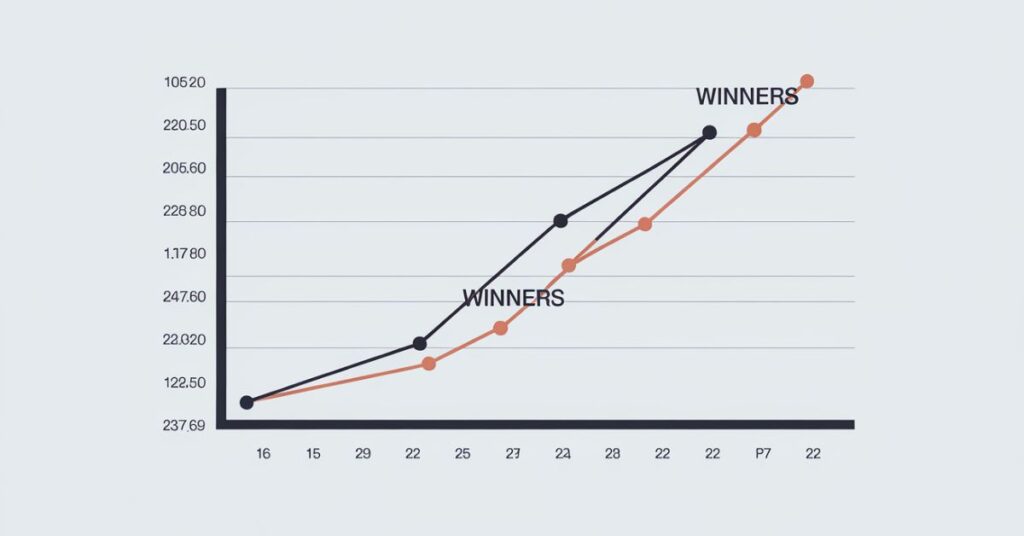
Some industries are thriving thanks to AI-driven innovation, while others struggle to keep up. Technology, healthcare, and e-commerce are among the winners. For example, AI in healthcare improves patient care through early disease detection.
On the other hand, sectors like traditional retail and low-skill manufacturing face challenges. Adopting a digital revolution mindset is crucial for survival. Companies that invest in strategic decisions and AI technologies will gain a competitive edge.
My Vision for the Future of Work

The future of work will be defined by a balance between technology and human ingenuity. AI in human collaboration will empower employees to unlock their full potential, focusing on innovation and creativity. As companies embrace workforce adaptability, the possibilities are endless.
To succeed, we must invest in reskilling and foster a culture of inclusive workplace practices. We can create a world where AI benefits everyone by addressing challenges like cybersecurity risks and bias. This future isn’t about replacing humans but enhancing their ability to thrive.
FAQ’s
How is Artificial Intelligence (AI) transforming the workforce?
AI is revolutionizing the workforce by automating repetitive tasks, enabling data-driven decision-making, and fostering innovation. It helps businesses improve efficiency, reduce costs, and create new roles that blend human creativity with AI-powered tools.
Will AI lead to job displacement, and how can workers prepare?
While AI may displace certain roles, it also creates opportunities for new, tech-driven positions. Workers can prepare by engaging in reskilling and upskilling programs to learn in-demand skills, such as data analysis, AI integration, and emotional intelligence.
What industries benefit the most from AI integration?
Industries like healthcare, technology, and e-commerce are thriving due to AI-driven innovation. For instance, AI tools in healthcare improve diagnosis accuracy, while predictive analytics optimize supply chains in e-commerce. Traditional industries like retail and manufacturing face challenges but can adapt through digital transformation.
What are the ethical concerns related to AI in employment?
Key concerns include bias in AI, job inequality, and privacy risks. Ensuring ethical AI frameworks and addressing the digital divide in technology adoption are crucial for minimizing these issues and fostering a fair workplace.
How can businesses foster effective human-AI collaboration?
Businesses can encourage human-AI collaboration by adopting AI tools that enhance productivity while empowering employees. Offering personalized learning opportunities, promoting creativity, and ensuring cybersecurity are essential steps for integrating AI into the workforce successfully.
CONCLUSION
The future of work is bright and full of opportunities, but it demands adaptability and forward thinking. Artificial Intelligence is not just a tool; it’s a catalyst for a digital revolution that redefines how we work, think, and collaborate. Embracing workforce transformation means investing in reskilling, promoting human-AI collaboration, and fostering inclusive workplaces. Together, businesses, governments, and individuals can navigate challenges like job displacement and automation, bias in AI, and the digital divide in technology adoption to create a more equitable, innovative future. This transformation is not about replacing people but about unlocking human potential in AI-driven roles to build a more prosperous and sustainable tomorrow.

